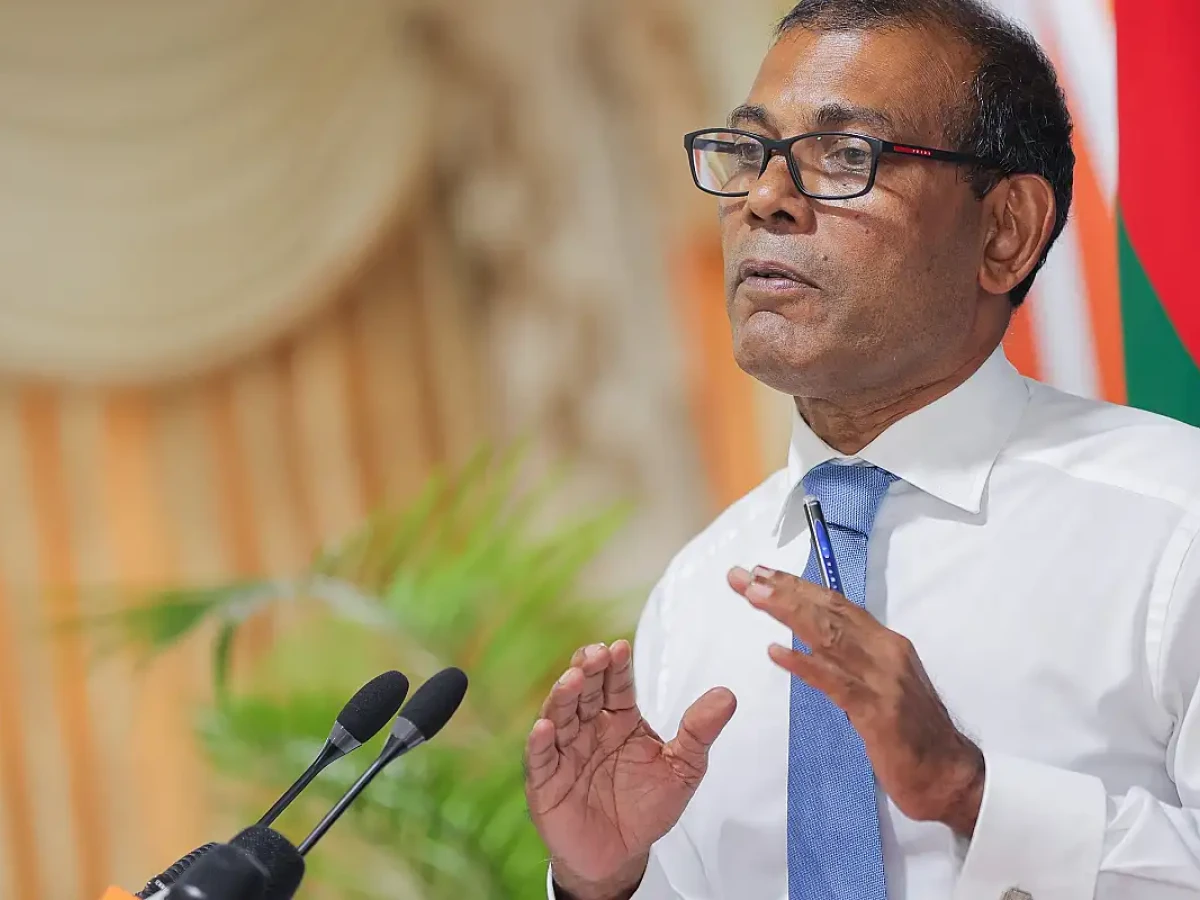
Nasheed urges govt to reject IMF package, go for climate funding instead
If a country goes for the IMF package, it has to cut its domestic spending significantly.
By
Shahudha Mohamed
Former President Mohammed Nasheed has said that countries in the Climate Vulnerable Forum (CVF) like the Maldives do not need to participate in the International Monetary Fund’s (IMF) programme to improve the economic situation.
Nasheed said this in a post on 'X' on Saturday evening, amid rumors on social media about Maldives' economic situation having deteriorated so much so that the government has decided to take an IMF bailout package.
He said in his post:
-
Maldives is a CVF country; the CVF-V20 Secretariat will provide assistance to such countries
-
He said carbon trading and 'debt-for-climate and environment' swap will provide ways to reduce debt and provide technical support
Nasheed participated in an IMF program in 2011 to stabilize Maldives financial situation during his presidency.
When the Maldives agreed under the programme to reduce civil servants and introduce GST and TGST, it caused a lot of political challenges for Nasheed's government.
Economic Minister Mohammed Saeed had denied rumours on social media that Maldives is in such economic stress that it needs to take an IMF bailout package.
He said Maldives does not have to participate in any particular program and the economy is growing faster than expected.
The IMF has welcomed the government's economic measures, he said, adding that Maldives does not need to go for an IMF bailout package.
In a statement issued after an IMF delegation's visit to the Maldives, it was stated that the country's economy has started to function after the Covid-19 pandemic and the country's economy will grow at 5.2% this year. However, this is a figure lower than last year.
The IMF has welcomed the government’s self-imposed fiscal reform agenda to reduce economic losses by tightening public debt and financing debt in a sustainable manner.
If a country goes for the IMF package, it has to cut its domestic spending significantly. For example, the IMF package could require staffing cuts civil service sectors.
Related
Related

VIA share sale better than high-interest bond issue, Nasheed says

Nasheed invites Trump to Maldives to witness climate impacts

Nasheed warns of increasing flooding amid climate change

